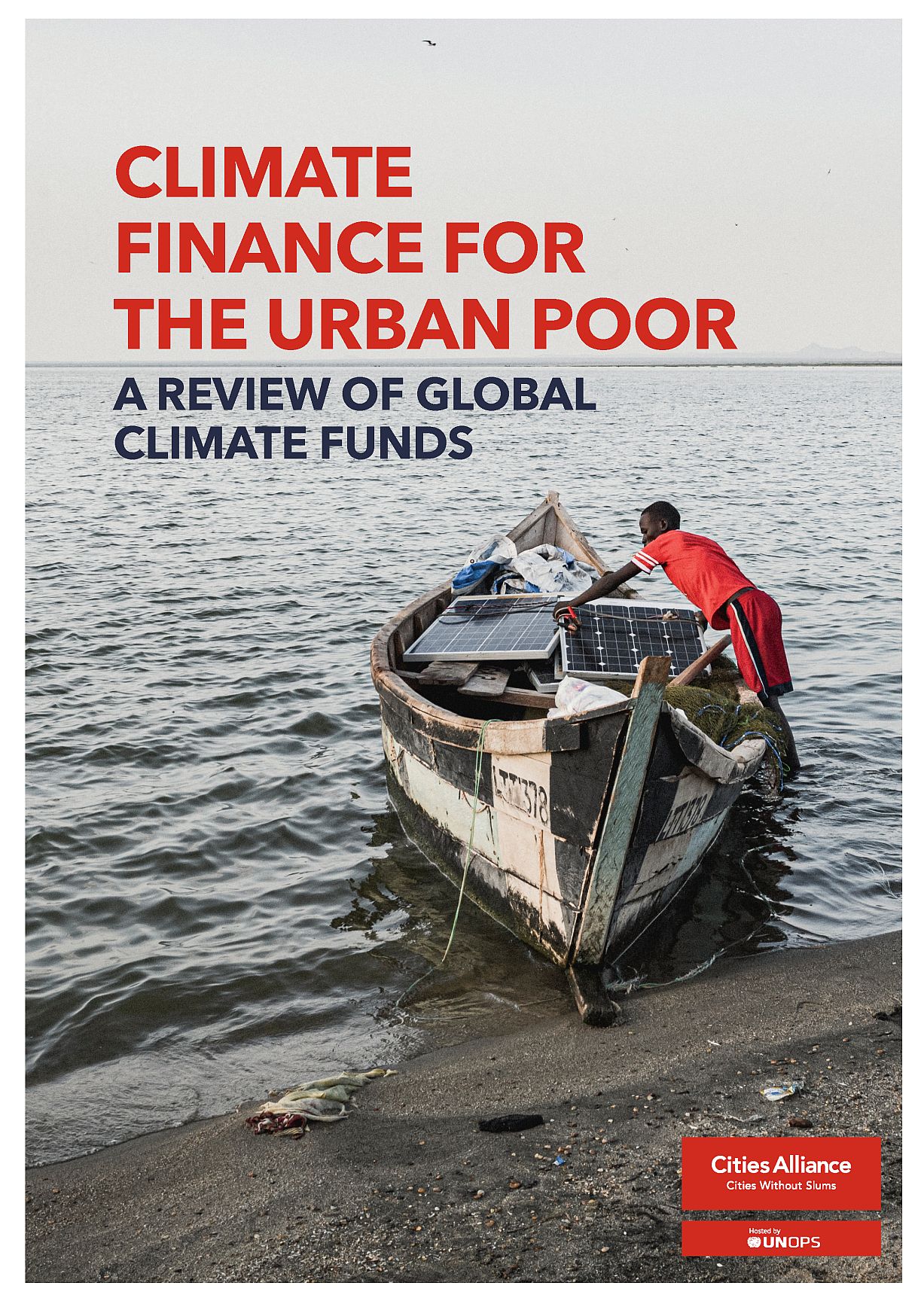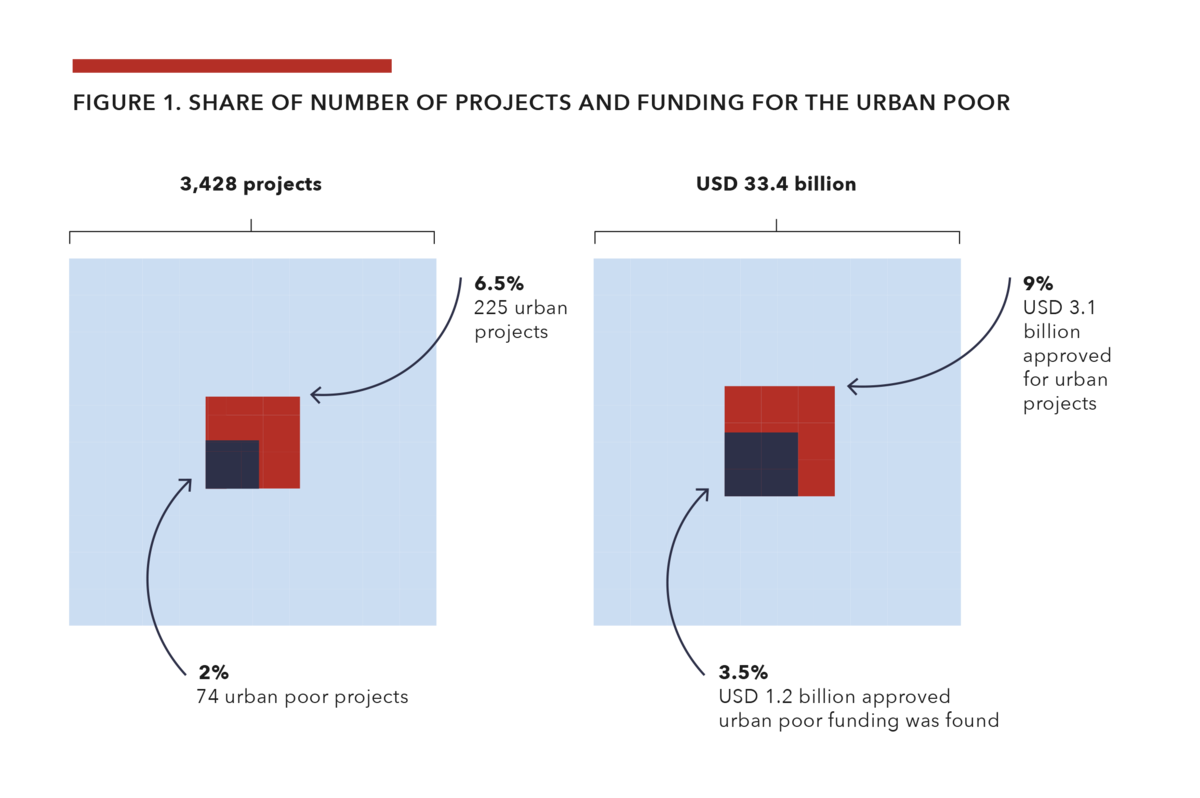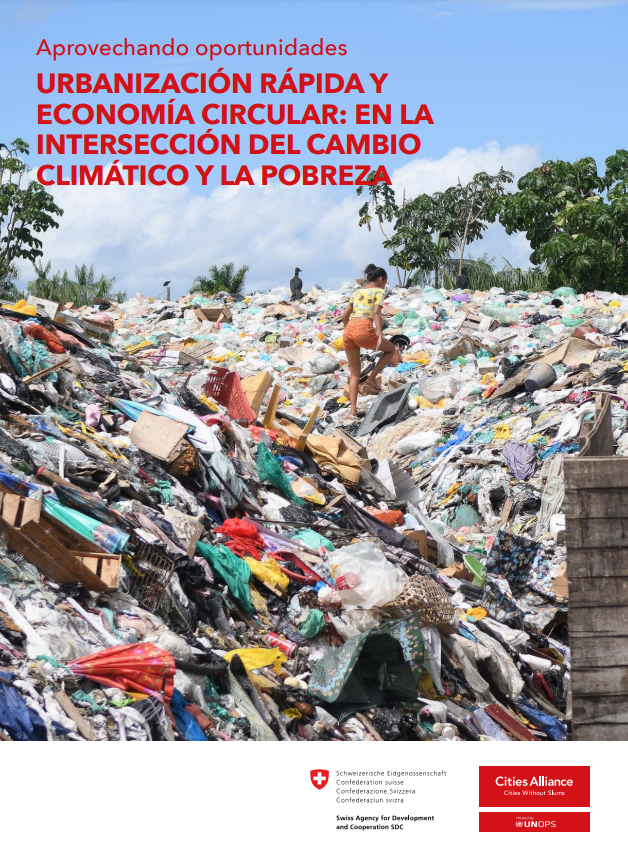- Who We Are
- How We Work
- Regional / Country Initiatives
- Legacy
- Core Themes
- Working Groups
- Portfolio & Results
- Newsroom
- Resources
Climate Finance for the Urban Poor: A Review of Global Climate Funds


The new Cities Alliance report Climate Finance for the Urban Poor: A Review of Global Climate Funds, reveals that only 3.5 per cent (USD 1.2 billion) of global climate finance has been allocated to projects targeting informal settlements and the urban poor, in the last two decades.
This pressing challenge highlights a critical funding gap that must be addressed to better support climate adaptation and mitigation efforts for low-income city residents, who are disproportionately affected by extreme climate impacts.
As global temperatures continue increasing, resulting in unprecedented, costly and deadly extreme heat, droughts and flooding, urban poor communities face heightened risks. While these communities are on the frontlines of the climate crisis, they also hold significant potential to support mitigation and adaptation efforts, making them key to the success of global climate agendas.
Climate financing is a critical pathway to drive sustainable transformation through investments in adaptation and mitigation efforts in vulnerable cities and countries.
However, despite the clear need, minimal data exists on the extent to which climate finance is reaching the urban poor. In response, Cities Alliance assessed
the share of global climate finance dedicated to the urban poor and informal settlements, analysing data from 22 climate funds.
The research shows that funding is limited, with only 3.5 per cent of the total amount—USD 1.2 billion— allocated to initiatives targeting the most vulnerable citizens. The report includes an in-depth look at two of such projects offering insights for scaling up climate finance in these critical areas.

It also provides key recommendations for donors, national and local governments, and other urban actors on how to increase and better target climate finance to the urban poor, including:
- Donor organisations need to identify the urban poor as an especially vulnerable group and create measurable targets.
- Governments should engage slum dweller representatives when revising the Nationally Determined Contributions (NDCs), National Adaptation Plans (NAP), and other strategies.
- Local community organisations shall also be involved in project development to identify the best sites for interventions and increase community ownership.
- Organisations should further partner with local communities to collect data to inform assessments and tailor interventions to benefit the urban poor.
The report will be launched during the event How Much (or Little) Climate Finance Focuses on the Urban Poor? at COP29. The session will take place at the Swedish Pavilion at 13:00 (Baku time, UTC+4), bringing together experts to discuss the urgent need for increased climate finance for the urban poor.

